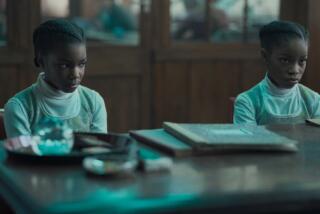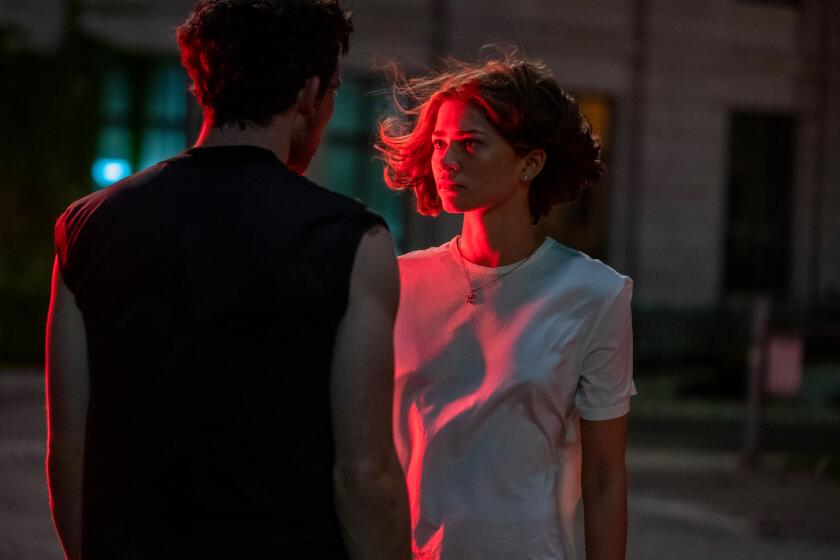MOVIE REVIEW : Marital Issues Examined in ‘The Wash’
Nobu, the stubborn, vinegary husband played by Mako in “The Wash” (at the Music Hall) is an ungiving, unyielding man. Even though Masi (Nobu McCarthy), his docile wife of almost 40 years, has learned to put up with his moods and his uncommunicativeness, the fact that he hasn’t approached her sexually in years has been the final, unspoken indignity.
Before the film opens, Masi has moved to an apartment in another part of San Diego’s Japanese community. Dutifully, though, she still does Nobu’s washing and ironing every week and brings it to him. She’s much too old-fashioned to drop that chore.
The unheard-of shock of her leaving hasn’t reformed Nobu’s innate meanness. On one of her laundry trips, she sits with him briefly, exhausted from her day’s work as a cleaning lady. Nobu lets her pour herself a cup from his teapot, take a sip and gag on it before he says, “Hot dog water.” Nice guy.
“The Wash,” which Philip Kan Gotanda has adapted from his own play, is imperfectly directed but not unmoving and full of complex, very real issues. Here, they apply to a Japanese-American couple who are internment camp veterans, and to their Sansei children. However, they are the issues of every culture: whether a bad marriage is better than no marriage at all; how much we owe a partner and how much we owe ourselves, and whether one can find one’s real identity after decades of neglect and shabby treatment.
On the mixed score card of “The Wash,” a major plus is that we see Nobu in the round, so to speak. He’s fenced in by his own almost incoherent rage. We may not love Nobu, we can see what a handful of nettles he must be, all the time, to everyone around him, wife, daughters, friends, but as Mako makes him understandable he is careful not to soften his edges.
The other strength is watching Masi’s character unfold like one of those colored paper flowers that grows in a water glass. Allowing herself to be courted and finally loved by a hesitant, gentle widower (Sab Shimono, self-effacingly fine), McCarthy is glowing as Masi gains strength and finally a sense of herself as someone who deserves love.
Yet “The Wash” is not an untroubled production. Mako, McCarthy, Shimono and Shizuko Hoshi as Nobu’s long-suffering girlfriend, the waitress Kiyoko, created their roles when the play was performed at the Mark Taper Forum. Ironically, that may be one of the film’s drawbacks. First-time feature director Michael Toshiyuki Uno has a cast used to projecting to the back of a theater and to creating with rather broad body language. Too often you still feel that on-stage air; the difference between an actor “signifying,” or giving an emotion purely and straightforwardly.
Uno also uses some jarring business after a wedding, when the daughters (Patti Yasutake, Marion Yue) swig from a champagne bottle while gossiping about their parents. Details like that (or like the noticeable press-on letters on a family tombstone at the close) feel wrong and break an audience’s trust. They force the actors to work twice as hard to get the audience’s concentration back.
Also, and unfortunately, film is an unforgiving medium when it comes to how actors look on screen. Both Mako and McCarthy are much younger than their characters, but it’s Mako who must work against probably one of the worst wigs or dye jobs since Mickey Roarke’s shifting rainbow of hair coloring in “Year of the Dragon.” Looking plastery in some scenes, glowing eerily in others, it becomes an almost fatal distraction to a fine performance.
More to Read
Only good movies
Get the Indie Focus newsletter, Mark Olsen's weekly guide to the world of cinema.
You may occasionally receive promotional content from the Los Angeles Times.






